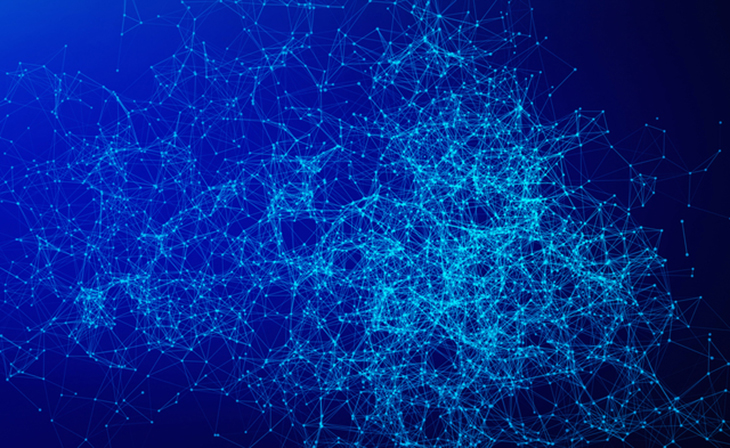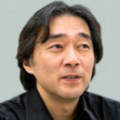Maintaining Distance from Arguments, Cynicism, and Hatred in an Age where Connections and Emotions Are Weaponized

“The reasons behind why people become dependent on social media, where arguments, cynicism, and hatred towards others are rampant, are unknown […]. All that we can do is distance ourselves from dependency and support those who also wish to recover from this dependency.”
Photo: tampatra / PIXTA
Tonami Aki, Associate Professor, Tsukuba University
Recently, argumentative and cynical influencers have been enjoying increasing popularity in Japan. “Argumentative” generally refers to arguing and seeking to defeat an opponent in an argument. In this context, it refers to a manner of speech used by influencers active on social media. It is considered a debate technique[1] that finds fault and seeks to corner an opponent through the manipulation of information. “Cynical” refers to mocking something, and in social media, it is the act of making fun of someone by looking down on them.[2] Being “cynical” is characterized by the intersection of relationships of power between the online and the real world, whereby so-called “weak” people in the real world treat men and women who are “strong” in the real world with contempt online.
So why has support for these argumentative and cynical styles come to be seen as a type of social issue? First, it may be that many people feel uncomfortable with the fact that argumentative and cynical styles are more radical and extreme when compared to conventional modes of communication used offline. For example, Nishimura Hiroyuki, also known as Hiroyuki, is popular with a younger generation and is a typical example of a user of such argumentative and cynical styles. This style is unpopular with intellectuals, sensible media outlets, and more.[3]
Nonetheless, there is a possibility that it is a reaction against perceived changes occurring in society. Up until now, argumentative and cynical styles have been seen by sensible people as just a subculture, a manner of speaking popularized by the spread of social media, and used in an environment that is neither home nor work. This is particularly true of “2channel,” an anonymous bulletin board established by Hiroyuki in 1995. As a result, argumentative and cynical styles have been overlooked as limited in their influence upon the real world. In fact, social media use in Japan is at 54.7%, which isn’t particularly high by international standards, and among social media users, 71.6% said that they do not use bulletin boards such as 2channel (currently 5channel) at all, so it is natural to overlook it.[4]
However, since the start of the 2020s, Hiroyuki has increased his exposure to mass media via his own YouTube channel, as an author of business and self-help books, and by appearing as a commentator on TV shows. His name has come to be frequently given as someone the younger generation looks up to.[5] At the same time, the people who connect with him by sharing his manner of speaking – putting others down and treating people with contempt online – have become a group that could be said to have its own style, and their influence has leaked out into the real world.
To date, interest in this “leaking out” has only focused on social media as a place where people dealing with problems in the real world can gather. For example, the criminal behind the 2008 Akihabara mass murder committed the murders to protest over a conflict that had occurred on an Internet bulletin board, one of the few things that he could rely on. In 2012 to 2013, the offender that threatened various people related to the manga Kuroko’s Basketball claimed responsibility for their crimes on 2channel. However, it was reported that the person behind the August 2021 Tokyo stabbings that injured 10 people on a train on the Odakyu Line had a strong desire to murder women, saying that he began to have the desire to murder women who looked happy six years ago. These behaviors and ways of thinking shared in places where argumentative and cynical styles appear have come to be recognized as problems affecting the real world. The online space has come to be seen as a place where true feelings can be expressed, where discriminatory thoughts, taboos, and things that cannot be said in the real world are not censored, and where freedom of expression is guaranteed. The net space has therefore come to be regarded as something that is radical and needs careful handling.
Three months after the incident on the Odakyu Line, a similar incident occurred on the Keio Line. The offender dressed as the protagonist of the movie Joker, a manifestation of misogyny rampant in the net space, and carried out a performative crime aimed at people who understand the relevant subculture[6]. In the movie Joker, the Joker is an incel (or “involuntary celibate,” a group of men who primarily gather online and who blame women for the fact that they cannot find a romantic or sexual partner or for the fact that they do not have any sexual experience[7]), and has come to be seen as a symbol for men who are socially vulnerable in all aspects and who hate not only women but all of society. In 2022, former Prime Minister Abe Shinzo was shot and murdered by a man believed to have a common pattern of behavior online. The alleged Twitter account of the perpetrator is said to have been characterized by hatred of the Former Unification Church, revulsion of the Abe administration and South Korea, anti-feminism and misogyny, minority consciousness as a “weak man,” and anti-neoliberalism.[8]
This leaking out effect manifesting itself as real-world crime is not limited to Japan. In Canada in 2018, a man who described himself as an “incel” used a van to attack pedestrians. Ten people died and more than 15 were injured.[9] In the United States, a mass shooting occurred in Buffalo, New York in 2022, where 10 people died and 3 were injured. The suspect, an 18-year-old white male, stated, “I only really turned racist when 4chan started giving me facts,” in reference to the English language version of 2channel (4chan) owned and managed by Hiroyuki.[10] The report by the New York Attorney General even stated that “this attack is part of an epidemic of mass shootings often perpetrated by young men radicalized online by an ideology of hate”.[11]
In the UK, Andrew Tate, a former kickboxer and cast member on the reality show Big Brother, posted a short video to TikTok, a video social media platform, that displayed intense misogyny. He became an influencer in just three months starting in April 2022, after his followers actively called on him to “hack” the algorithm. During that time, he launched “Hustler’s University,” an online salon with a monthly membership fee of £39 (around ¥6,400), and more than 130,000 people joined. Many of them were young boys or men living in the UK and the US.[12] Tate himself has lived in Romania since 2017, and in December 2022, he was arrested with his younger brother on suspicion of human trafficking and sexual assault. He and his brother are accused of creating “an organised crime group with the purpose of recruiting, housing and exploiting women by forcing them to create pornographic content meant to be seen on specialised websites for a cost.”[13] It is considered an issue that the dislike or hatred of any particular person or group of people that is amplified in the online space can lead not only to crime but to enormous profits, as seen here.
Broad support for argumentative and cynical styles is recognized as a social problem because the use of argumentative and cynical communication methods on social media by people conventionally defined as the majority is being used to target women and minorities. We can safely assume that these expressions of hostility have a negative effect on the real world through crime and other harmful behavior, and they are now considered a problem in mainstream public life.
So why exactly is this happening?
The first reason is the dilemma of connections brought about by information and communication technology (ICT). Technology has always shaped human society and cultural development, but what emerged in the 21st century was satellite/Internet infrastructure to support existing technology.[14] Along with the development of transportation technology, ICT rapidly accelerated the speed that ideas, news, products, information, capital, and technology travel around the world. And yet, though our connectivity has brought the world closer together, it has also made us more disconnected.[15] There is a dilemma, as being connected is both a strength and a vulnerability, and this can be easily weaponized.[16] For example, upon discovery of a new coronavirus in China in late 2019, it took only three months for a global pandemic to be declared precisely because the world is deeply connected. As a more pressing matter, the merits and demerits of connectivity on social media for young people are being debated. Some believe it has increased depression and suicide[17], others believe it empowers[18], and some people believe both[19]. In 2021, a whistleblower made public that Facebook knew upon purchasing Instagram in 2012 that the social media platform had a negative effect on the mental health of its young users, especially girls. According to their survey, 13.5% of teenage girls reported that Instagram made their suicidal thoughts worse and 17% said it made their eating disorders worse.[20] In this way, it is becoming clear that while being connected through social media is empowering, it also causes a sense of dissatisfaction (a sense of relative deprivation) where users compare themselves with many other people and feel a sense of misery, and it can at times even cause serious psychological damage.
The second reason is that there are changes to the preferred ideal human image brought about by changes in industrial structure. According to Licensed Psychologist/Clinical Psychologist Nobuta Sayoko, labor management methods known as “Fordism” that supported the conveyor-belt production style represented by the automobile company Ford became unviable in the latter half of the 20th century due to changes in technology and consumer demand. Nobuta points out that this may have brought about major changes in the ideal human image that companies and society alike expect.[21] In Fordism, rigidity, lack of variation, long-term prospects, and rigid order were desirable, but these have been replaced with readiness and flexibility, requiring both relationships that change position and distance at rapid speed and personal responsibility through individual freedoms. In the same way, the attitude that men should be quiet, remain steadfast in their convictions, and be stubbornly persistent was mainstream and viewed as positive masculinity in Japan, but in the post-Fordism era, this attitude has come to be seen as undesirable and given the stigma of being “developmentally challenged.”[22]
Miyake Yoshio, a specialist in the history of thought, pointed out that it is very “rational” for a person who has fully internalized the mainstream values of modern Japanese society, including social success and self-responsibility, to ensure their survival while satisfying their need for approval by anonymously abusing women or minorities online if they do not attain social success in the modern society. In other words, they believe that someone or a group of people are the reason things have not gone well despite their best efforts, and they demonize this person or group to try and save themselves. This person or group can be their parents, China, South Korea, Koreans living in Japan, Okinawa, or women who are (or appear to be) successful. Miyake states that this is because it is too painful for someone who has internalized social success and self-responsibility to reject their own existence after having worked so hard.[23]
The third reason is the arrival of an era of emotions. In international relations, this was prefaced by a relaxation in the material-centric view of the world following the trend of constructivism after the Cold War.[24] In other words, traditional security concepts that concentrated on national military issues remained strong in the US, while discussions on what security is and what the target of security should be were actively pursued in Europe. Security is not determined unambiguously, but instead that which is perceived as a security issue becomes a security issue and interest has shifted to people’s narratives surrounding security. In recent years, information from sociology, psychology, and brain science has been incorporated into the study of “emotions” in international relations. In this field, “emotions” and “thinking (reason)” are fused together rather than being independent of one another, and it is assumed that emotions play an important role more often than not in assessing situations and making decisions.[25] For example, it is thought that conflicts over memory are most likely to occur when emotions are running high, such as when public narratives about the past are clearly in conflict with collective memory.[26]
In summary, we have given birth to an age where everything is connected through the development of ICT. New technologies have changed not only industries and labor management methods but also the preferred ideal human image. This series of changes has had a variety of positive and negative effects on human society and culture. Specifically, the connection to many other people through social media and an emphasis on emotions on these platforms can easily be weaponized. This ability shows no signs of being bound within social media, which has previously been seen as something independent and separate, but more and more reaches out to and impacts the real world. It is perhaps against that background that many people feel unsure about the strong support for argumentative and cynical styles.
So what should we do? A universal solution is difficult, but I would like to offer some thoughts that might give you a few ideas. Mark Leonard, who considers this age of over-connection as “The Age of Unpeace,” has deemed the concept of therapy as essential to “disarm” connectivity.[27] Specifically, he offers the following: step one: face up to the problem, step two: establish healthy boundaries, step three: be realistic about what you can control, step four: self-care, and step five: seek real consent (from each country regarding degrees of connectivity). Cal Newport, who recommends digital minimalism, aptly compared social media and smartphones to slot machines.[28] He also proposed having alone time, not “liking” things online, resuming hobbies, and deleting all social media apps as the state of over-connection is an addiction, a condition in which a person engages in use of a substance or in a behavior for which the rewarding effects provide a compelling incentive to repeatedly pursue the behavior despite detrimental consequences.
The rise of argumentative and cynical styles and the unease about these styles may be a reliance upon relationships, or a state in which behaviors to try and control others are unceasing. [29] According to sociologist Nakamura Hideyo, the driving force behind unceasing behaviors is addiction, and behind this are compulsive ideas about how things should be, not being satisfied unless something is done, and a certainty about things. If we can observe the four emotions of pain, anger, fear, and desire within ourselves and accept these in a healthy way, we should be able to distance ourselves from this addiction. When supporting others with addiction, we can stay the course by using these four emotions as landmarks to “discover a person’s difficulties one at a time and support the person in adjusting their body, mind, and lifestyle so that these emotions do not become too overwhelming for them.” The 12 Step Program, a global community aimed at recovery from addiction, says that we must learn from our addiction problem, believe that we are powerless against it and that it is something that exists beyond our control, and learn our tendencies, habits, and ways of thinking that tend to cause problems. Nobuta also states that causality does not apply to addiction because addiction is a part of the survival process from violence, abuse, and other harm.[30]
The reasons behind why people become dependent on social media, where arguments, cynicism, and hatred towards others are rampant, are unknown, both to others and to the person who has become dependent. All that we can do is distance ourselves from dependency and support those who also wish to recover from this dependency.
Translated from “Tsunagari to kanjo ga bukika sareru jidaini ‘Rompa’ ‘Reisho’ zo’o kara kyoriwo toru (In an era where connections and emotions are weaponized, distance yourself from ‘refutation,’ ‘mockery,’ and hatred.),” Shigoto Bunmyaku, Vol. 22 2023, pp. 14-24. (Courtesy of tababooks LLC) [August 2023]
Keywords
- Tonami Aki
- Tsukuba University
- social media
- argumentative
- cynical
- influencers
- weak people
- strong people
- real world
- 2channel
- 5channel
- 4chan
- Nishimura Hiroyuki
- YouTube
- Akihabara massacre
- Keio Line
- Joker
- misogyny
- Abe Shinzo murder
- incel
- Buffalo mass shooting
- Andrew Tate
- disconnect
- depression
- suicide
- era of emotions
- Mark Leonard
- Age of Unpeace
- over-connection
- addiction
- Nakamura Hideyo





